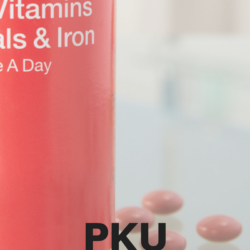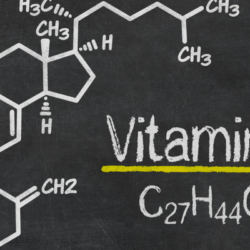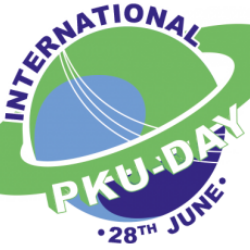It’s too easy to be drawn in to simply describing my experiences of returning to PKU after 17 years of PKU neglect, but I’d like to do a little more than that here. I’d like to add an extra dimension to my experiences by offering further insights into the mistakes I’ve made and revealing how PKU adherence opens unlimited opportunities.
Following a childhood of being brilliantly organised and cared for by my parents, I went completely off the PKU radar by the age of 11. I hadn’t felt the impact of high phenylalanine levels until I was regularly visiting the shops, either alone, or with friends, and by this age I had been doing so for several years and rejecting any knowledge of negative impact of the high protein intake. It’s not that there wasn’t any negative impact, it’s more that I was so young I simply didn’t know what I was looking out for – and didn’t want to notice any unpleasant symptoms!
I should have been on 5 exchanges in my teenage years, but (despite the dissatisfaction of my parents) the doctors at my local hospital had relieved me of my PKU duties and insisted “there is no point in continuing with treatment if he is continuing to cheat the way he does”, and I was officially off the diet from the approximate age of 12 without returning until I was 27 years of age.
Albeit, the first few years of non-adherence was being unofficially off treatment, I spent approximately 17 years eating all the wrong things without realising the effects these foods were having on the way I was feeling, or how these foods were restricting my potential. I was eating chocolate as I made my way to school, drinking milk (on my milk round) before I even set off and had a lunch of either pizza, burger, sausage, kebab – but whatever I decided on was always served with a full portion of chips and I wasn’t taking any supplement at all.
I never realised how may eating habits affected my social habits at school, and this still has an impact on my life, not because I’m still affected in the same ways, but because people remember me from my school days. Eating a high protein diet, and going against the way my body is built, was affecting my concentration levels (and I’m sure many of you reading this will relate). So, I wasn’t responding to conversations as sharply as I could do if I was on treatment. Despite having plenty of friends, a jovial personality and a silly sense of humour, I was repeatedly walking away from conversations either not responding much at all, or not being very convincing in my response, because protein is toxic to my brain and my brain was too lazy to come up with a quick answer.
Being so young, and repeatedly finding myself in these situations, saw my confidence in social situations decline. I relied on a sense of humour but you can be viewed as only a clown if you constantly go about your ways in an overly silly manner, so I was forced to take the back seat to the sharper, more confident guys in the crowd. Now, I did have some good times back then and I had some great friends too – that’s not the issue. The issue is that I could have been one of those sharper, more confident guys. I didn’t need to seem so timid and vulnerable when I was being confronted or challenged with witty banter during my school days, but this is what a lazy, phenylalanine rich mind did – and, as for my GSCE grades, I passed one (A-C), which was English literature.
We’re not born to live in limited ways. If we were, then we’d have been born with PKU in the 1800’s (long before it’s discovery), but we’re here now. We have a choice!
This lifestyle/mindset continued until I returned to the diet at 27. I worked in some under inspiring workplaces (which needed little to no qualifications) and I had very little ambition, but this all changed when I returned to PKU. I’d been hooked on jokes for several years, and after only a few months of being back on treatment I was invited to perform stand-up comedy at a charity fundraising event. I accepted the invitation, came 3rd out of 7 acts, and went on to do a handful of comedy attempts at other local charity events and comedy clubs (something there is absolutely no chance I could ever have managed off the diet).
I would never have even considered getting on stage if I was feeling the same as I always had been, but the improvement in my thought processes didn’t only improve my performance at work at that time, it also inspired me to get on stage, which, in turn, had me realise my passion for writing. This realisation is now seeing me study an English literature degree and I’ve recently began talking at PKU events to help inspire other (struggling) PKUers and PKU families.
I’ve certainly made mistakes, and there’s no doubt I’ll make more mistakes in the future, but I’ve learned that the PKU diet allows me to express myself confidently. It allows me to understand what I want. It allows me to visualise how I can achieve, and it allows me to help other people.
We’re not born to live in limited ways. If we were, then we’d have been born with PKU in the 1800’s (long before it’s discovery), but we’re here now. We have a choice!
I’ve found my return to the PKU diet to be almost an awakening of my natural, organic alertness and confidence which was lying dormant for so many years while I was denying the reality of who I was – yet knowing the condition I was born with.
We don’t need to be restricted. We all have a life purpose!
Paul McKellar is a PKU adult and comedian. He takes Cambrooke’s Glytactin RTD and Glytactin BetterMilk formulas, and says that returning to the PKU was an awakening for his alertness and confidence.











